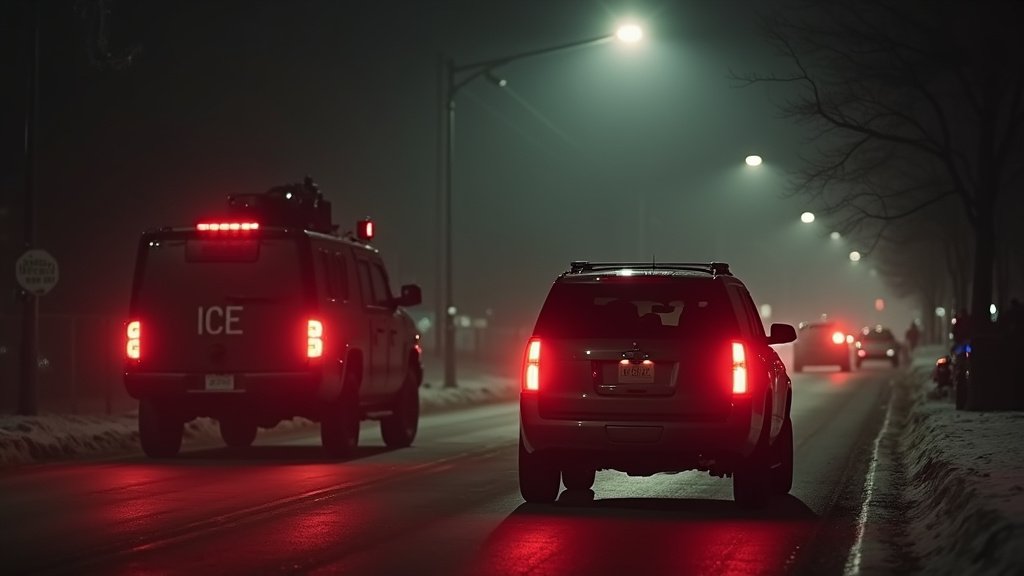Washington D.C. — The Department of Homeland Security (DHS) has taken a decisive step, formally petitioning the Supreme Court to overturn a critical California judge’s order that has temporarily reshaped immigration enforcement in a significant region. At the heart of this high-stakes legal battle is the question of whether Immigration and Customs Enforcement (ICE) agents can base arrests on factors such as an individual speaking Spanish or appearing Latino, a practice broadly condemned as racial profiling.
This legal challenge sends ripples across civil rights communities and underscores the deeply contentious nature of the Trump administration’s approach to immigration enforcement. The administration argues that the judicial injunction critically impedes federal efforts in what it identifies as a primary hub of the immigration crisis, creating an obstacle to their stated mission of securing the nation’s borders and enforcing immigration laws.
The California Injunction and Its Scope
The initial ruling, issued by a California judge, was a direct response to concerns over what was perceived as discriminatory practices by federal agents. This order specifically prohibited arrests by ICE based solely on an individual’s ethnicity or language. Its immediate effect was to halt such arrests across the Los Angeles metropolitan area, a region with a vast and diverse population, particularly a significant Latino community. For advocates of civil liberties, the injunction was a crucial bulwark against practices they argue violate fundamental rights and erode trust between law enforcement and communities.
The Trump administration, however, views this injunction as an undue restraint on its operational capabilities. Their appeal to the Supreme Court signals a clear intent to restore what they believe are necessary tools for federal agents to identify and detain individuals suspected of immigration violations. The administration’s argument centers on the principle that such judicial oversight, particularly concerning methods of identification, hamstrings their ability to conduct effective enforcement operations in areas deemed critical to national security and immigration management.
Community Concerns and Historical Echoes
The potential reversal of the California judge’s order has sparked profound apprehension among Latino organizations and civil rights groups nationwide. These organizations have voiced deep concern that a favorable ruling for the Trump administration would significantly escalate insecurity within the Latino community, leading to a climate of fear and vulnerability. The implications, they warn, could be far-reaching and severely negative, impacting everything from daily life to trust in institutions.
Critically, many within these communities are drawing direct and alarming comparisons to historical precedents. There is a palpable fear that such a ruling could usher in a new era of mass deportations, reminiscent of the widespread and often brutal campaigns seen in the 1930s. During that period, hundreds of thousands of individuals of Mexican descent, including many U.S. citizens, were forcibly removed from the country, a dark chapter in American history that serves as a stark warning for today’s activists. The prospect of history repeating itself, even partially, fuels the urgency of their opposition to the DHS petition.
The Broader Stakes for Immigration Policy
This legal battle is not merely about an injunction in Los Angeles; it represents a fundamental clash over the future of immigration enforcement and civil liberties in the United States. A Supreme Court decision favoring the Trump administration would set a powerful precedent, potentially legitimizing racial profiling as a permissible tool for federal immigration agents nationwide. Such a ruling would likely embolden ICE operations, expanding their discretionary powers to detain individuals based on criteria that critics argue are inherently discriminatory and unconstitutional.
Conversely, if the Supreme Court upholds the California injunction, it would reinforce judicial oversight over immigration enforcement practices, potentially forcing federal agencies to adopt more stringent and rights-protective methods of identification and arrest. The outcome of this case will undoubtedly make significant news, shaping the legal landscape for immigrants and ethnic minority communities across the country for years to come.
The petition to the Supreme Court marks a pivotal moment in the ongoing debate over how the United States manages its immigration challenges while upholding constitutional protections. All eyes are now on the nation’s highest court as it prepares to consider a case that could redefine the boundaries of federal power and civil rights.





